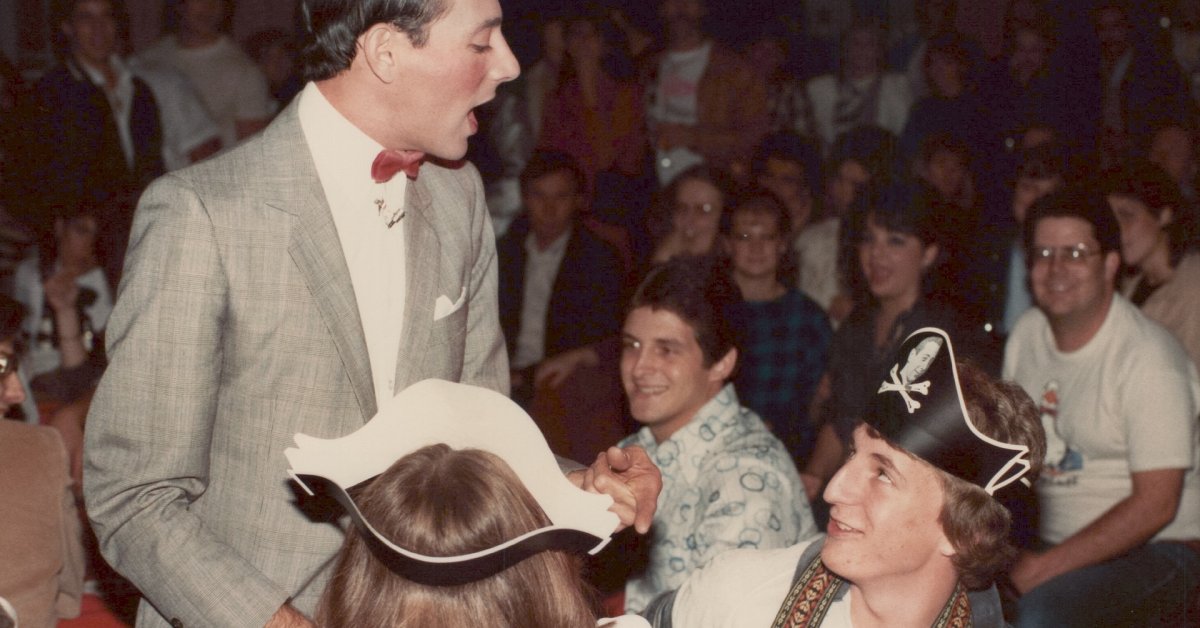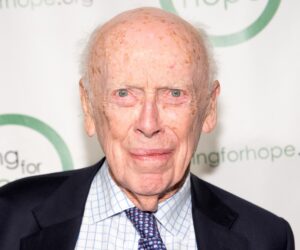If you’re startled by a thud at around 11:59 pm on May 31, don’t panic. It’s just the sound of the 2024-25 Emmys eligibility window slamming shut. Which also explains why, in the weeks leading up to that moment, you might’ve felt overwhelmed by TV’s glut of new shows, season-ending cliffhangers, and epic series finales. The good news is, you’ll get a chance to catch up once the release schedule slows down in June. The even better news? Many of May’s premieres—from teen romance Forever to 20-something comedy Adults, action throwback Duster to Austen throwback Miss Austen—are well worth your time. Here’s an unusually long list of the month’s highlights.
Adults (FX)
While previous zeitgeisty series about young adults in New York were set in aspirational environs (the north Brooklyn hipster corridor for Girls, the post-bohemian Village for Friends), Adults gestures toward Gen Z’s limited horizons by packing its five characters into one guy’s childhood home in an unfashionable part of Queens. Timid sweetheart Samir (Malik Elassal) is the man of the house, fumbling through challenges like paying by check for water-heater repairs. Issa (Amita Rao) is a loud, dramatic, sexually liberated heir to Broad City’s Ilana; her chill, pansexual boyfriend, Paul Baker (Jack Innanen), is, inexplicably, always addressed by his full name. Anton (Owen Thiele, who also appears in Overcompensating) makes friends everywhere he goes—including, in one episode, with a violent criminal who’s terrorizing the neighborhood. A striver afflicted with anxiety-induced anal bleeding, Lucy Freyer’s Billie is the only housemate who thinks much about her future.
The Gen X Friends had the luxury of slacking on a coffee-shop couch for years before ascending to the kind of high-powered careers the SATC women already had when we first met them in their 30s. As much as they flailed in pursuit of them, the millennial Girls, who graduated amid the grand-scale rug pull that was the Great Recession, had dreams and ambitions. But for the Adults, just being able to confidently claim the titular identity seems a sufficient life goal. [Read the full review of Adults and collegiate comedy, Overcompensating.]
Dept. Q (Netflix)
Dept. Q, a Netflix crime drama from The Queen’s Gambit writer-director Scott Frank, presents itself as a show about difficult people. Its antihero, Edinburgh police detective Carl Morck, has just come back to work after being shot in the line of duty—while berating a young cop who was killed before Carl, distracted by anger, had a chance to finish his rant. Body cam footage of the shooting, along with an already-irascible reputation, ensures his return is anything but triumphant. The premiere also introduces Merritt Lingard, a prickly prosecutor whose hostile cross-examination of a man she’s sure murdered his wife infuriates her colleagues. “You go too far,” Merritt’s boss warns her. Carl’s superiors feel similarly about his aggressive approach.
There’s great potential in the entwining of these “good guys” with bad personalities whose obsessive pursuit of justice has left them isolated and embittered. If only the show’s many plot twists didn’t limit its parallel accounts of abrasive crusaders navigating a flawed criminal justice system by limiting viewers’ perspective on Merritt (Chloe Pirrie). Frank, adapting a series of novels by Danish author Jussi Adler-Olsen, is ultimately more invested in Carl’s side of the story. What is, in one sense, a disappointing choice does have the benefit of setting up a detective series that has the potential to run for many seasons without getting old, thanks to characters and performances much richer than we normally see in this overcrowded genre. [Read the full review.]
Duster (Max)
Josh Holloway is the kind of ideal TV actor who, when effectively cast, can keep viewers coming back to a show week after week. No one knows this better than Lost co-creator J.J. Abrams. Which is why, he and his collaborator LaToya Morgan (Turn, Parenthood) have said, they were moved to custom-build a series around Holloway, who’d been absent from the small screen since the inevitable violent end of his antagonist arc on Yellowstone in 2021. Their new 1970s-set Max crime drama Duster is, indeed, a tremendous star vehicle. In fact, it’s so fun—and Holloway is such a blast in it—that the show falters a bit when it tries to get serious. [Read the full review.]
Forever (Netflix)
Two teenagers meet at a party and fall truly, madly, hastily in love. Then life—specifically, their families—gets in the way. It’s a tale at least as old as Shakespeare, whose tragedy Romeo and Juliet has resonated with and been reinvented by every generation for more than four centuries. But it is also the premise of Judy Blume’s 1975 YA classic Forever, a novel grounded in its second-wave feminist era that still feels authentic and audacious 50 years later. Whereas Romeo set the standard for passionate narratives of star-crossed romance, Forever resonated as a more frank, grounded, empathetic companion to young people embarking upon first love.
The release of the stunning Netflix drama series Forever proves that Blume’s book is also timeless and universal. Set in the cinematic, technology-mediated metropolis of late-2010s Los Angeles, among Black teens from very different backgrounds—rather than the novel’s white, suburban, 1970s New Jersey—creator Mara Brock Akil’s (Girlfriends, Being Mary Jane) update strays significantly from the original. Her fidelity is to the emotional realism of the source material, the way it takes young characters’ inner lives seriously while also honoring the wisdom of loving parents who see their children’s first love from a more experienced perspective. [Read the full review.]
The Four Seasons (Netflix)
Warm. Wistful. Tender. Empathetic. These are not words typically associated with Tina Fey, whose humor has a reputation for being brutal. But they all apply to The Four Seasons, a new Netflix dramedy series co-created by and starring Fey that follows three apparently settled middle-aged couples through a year of upheaval. Absent are the absurd characters, rapid-fire jokes, and dryly pessimistic social commentary with which Fey made her name on Saturday Night Live, and that have defined her career, from Mean Girls to 30 Rock. In their place is a moving depiction of marriage and friendship among Gen X empty nesters. [Read more about The Four Seasons and Tina Fey’s hidden optimism.]
Miss Austen (PBS)
The realities of single womanhood in Regency England, and for Jane Austen’s family in particular, are at the center of Miss Austen, a four-part BBC adaptation of Gill Hornby’s 2020 novel airing stateside on Masterpiece. Set more than a decade after Jane’s untimely death, this bit of historical fiction follows her beloved older (and only) sister, Cassandra, sensitively portrayed by executive producer Keeley Hawes, and imagines the circumstances that led her to destroy thousands of the author’s personal letters. Its primary characters are unmarried women. If you can get past the mannered stiffness typical of Masterpiece fare, it loosens up as it evolves into a perceptive and affectionate portrait of the kind of life Austen lived but barely wrote about. [Read the full review.]
Pee-wee as Himself (HBO)
During his lifetime, Paul Reubens had two consecutive, irreconcilable public personas. First, in the 1980s, he was the offbeat cult comedy star turned kids’ TV icon Pee-wee Herman; later, he was the tabloid staple arrested twice, a decade apart, on sex-related charges whose details he disputed for the rest of his life. The real Reubens, who died of cancer at 70 in 2023, bore little resemblance to either of these caricatures. Thanks to the filmmaker Matt Wolf, audiences that embraced, then rejected, then mostly forgot about Pee-wee finally get to spend some time with the man behind the red bowtie. And he turns out to be by far the most fascinating character of the three.
A biographical documentary in two feature-length parts, Pee-wee as Himself is built on 40 hours’ worth of conversations between Wolf and his subject. Not all of them are polite. A shrewd, highly motivated control freak who was always pushing for more say over the doc, Reubens speaks on camera about his aversion to being framed as a victim. It’s in capturing his difficult side—his egotism, how he knowingly sacrificed a happy life as an out gay man for fame and success, how many friends he alienated along the way—that Wolf both honors his wishes and transcends the typical celebrity tribute doc. There’s plenty of priceless footage from Reubens’ art-school years. Wolf talks to all the right celebrity pals: Debi Mazar, Tim Burton, Cassandra Peterson (a.k.a. Elvira). If you ever doubted his brilliance as a comedian and performance artist, there’s ample material here to make you a believer. But Wolf’s greatest contribution is in faithfully documenting his open, sometimes ugly dialogue with a figure who was widely known yet never, until now, understood.
Read More: How the Director of Pee-wee as Himself Convinced Paul Reubens to Finally Open Up








